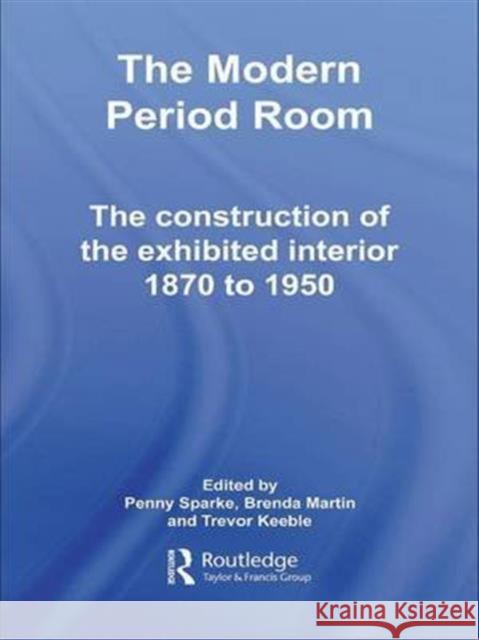The Modern Period Room: The Construction of the Exhibited Interior 1870-1950 » książka
The Modern Period Room: The Construction of the Exhibited Interior 1870-1950
ISBN-13: 9780415374699 / Angielski / Twarda / 2006 / 208 str.
The Modern Period Room: The Construction of the Exhibited Interior 1870-1950
ISBN-13: 9780415374699 / Angielski / Twarda / 2006 / 208 str.
(netto: 807,98 VAT: 5%)
Najniższa cena z 30 dni: 844,88
ok. 22 dni roboczych
Bez gwarancji dostawy przed świętami
Darmowa dostawa!
With contributors drawn from a broad range of disciplines, The Modern Period Room brings together a carefully selected collection of essays to consider the interiors of the modern era and their more recent reconstructions from a variety of different viewpoints. Contributions from leading design historians, architects and curators of the history of the domestic interior in the UK engage with the issues and conventions surrounding the modern period room to expose the conflicting tensions that lie beneath the conceptual and physical strategy of the modern period room's representational technique. Exploring themes and examples by prestigious architects, such as Erno Goldfinger, Truus Schroeder and Gerrit Rietveld, the authors reveal the specific coding of presented interior spaces. This illustrated new take on the historiography of twentieth century show interiors enables historians and theorists of architecture, design and social history to investigate the contexts in which this representational device has been used.
With contributors drawn from a broad range of disciplines, The Modern Period Room brings together a carefully selected collection of essays to consider the interiors of the modern era and their more recent reconstructions from a variety of different viewpoints.
Contributions from leading design historians, architects and curators of the history of the domestic interior in the UK engage with the issues and conventions surrounding the modern period room to expose the conflicting tensions that lie beneath the conceptual and physical strategy of the modern period room's representational technique. Exploring themes and examples by prestigious architects, such as Ernö Goldfinger, Truus Schroeder and Gerrit Rietveld, the authors reveal the specific coding of presented interior spaces.
This illustrated new take on the historiography of twentieth century show interiors enables historians and theorists of architecture, design and social history to investigate the contexts in which this representational device has been used.











